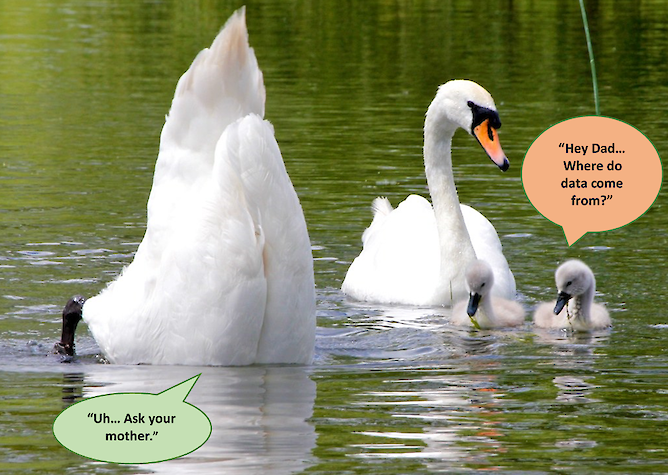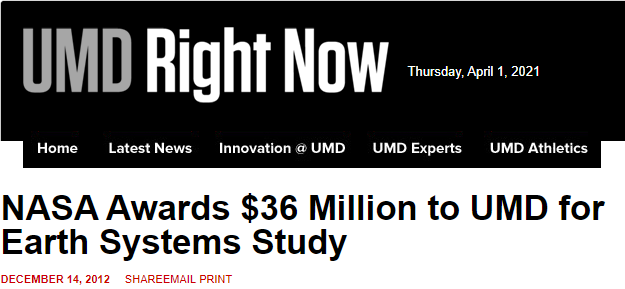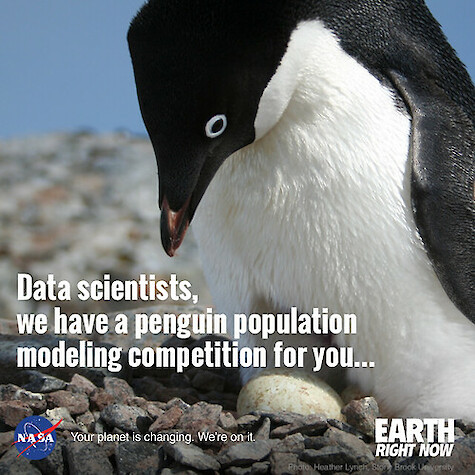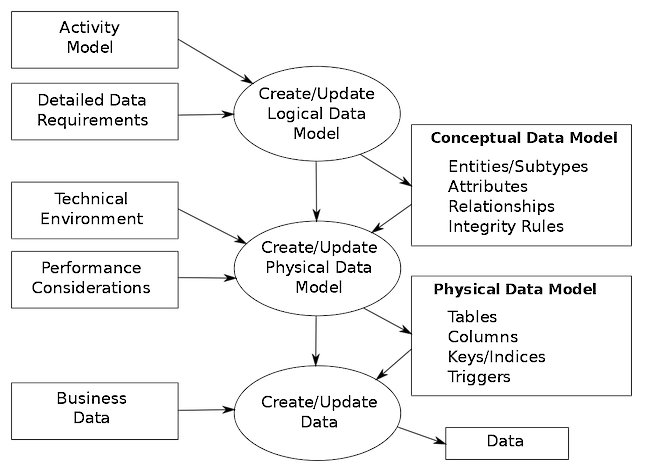Into the Void of Environmental Justice Data
Katrina Kelly ·Last Friday (March 26, 2021), marked Week 8 of our issues study group course for establishing an environmental justice report card for the Chesapeake Bay watershed. As we drill further down into the mechanics of constructing indicators, engaging in breakout group Jamboarding, and discussing deliverable logistics, some themes that emerged early in class discussions are beginning to crystallize into nagging concerns that seem stubbornly inherent in this endeavor. One of these concerns that was highlighted in the class blog, by student colleague Nylah McClain, is the lack of data to support the metrics of environmental justice indicators. The weight of the potential implications of this looms ever more fully as we progress in the course, as does the question: “How do we deal with this data deficit?”

How did we get here?
Before attempting to tackle the environmental justice data vacuum, it is worth considering how we got here in the first place. America is this meticulously comparative, research-focused society that has measured everything from the deepest depth of the Chesapeake Bay in Maryland to the largest ball of string on record. By the way, the answers to these queries are “174 feet” near Annapolis, Maryland, and “4.03m (13ft 2.5in) in diameter and 12.65m (41ft 6in) in circumference,” in Valley View, Texas, found easily by a Google search. How is it that this information is so readily available, yet we have so few measurements and so little historical research on environmental justice and its human impacts? One possibility for this data gap may be funding.

There is a well-established axiom that says “to engage in journal-worthy research you must follow the funding,” in other words, participate in projects in which there is a vested interest. These potential sources of research funding—corporate, governmental, nongovernmental, or private donorship, to name a few—may be motivated by professional, commercial, political, legal, or medical objectives, as with the COVID-19 vaccine, or they may be purely philanthropic. What is needed, however, for each research project is a value determination to invest in and sustain a project to its fruition. To put it plainly, we fund what matters to us.

Ironically, the holes in data measuring environmental, social, economic, and health disparities of BIPOC or otherwise marginalized communities are likely due to the very issues our work in this course is intending to expose, measure, and monitor. Since centuries of structural racism, white supremacist ideology, and class politics have toxified nearly every echelon and aspect of our society, it is unsurprising that there has not been more interest (and therefore more funding) of research into the byproducts of foundational inequities and the socio-economic vulnerabilities they produce and reproduce. In the Wang, et al. (2016) article, “Bias Against Novelty in Science: A Cautionary Tale for Users of Bibliometric Indicators”, the authors highlighted several areas of science policy bias against novel research and approaches that negatively impact the positioning, citing, and funding opportunities of these works, even though explorative scholarship often results in the broadest impact over time. The result is a data-poor ecosystem in a problem-rich environment. It is understood by most that lack of data is not a reasonable cause for abandoning a mission as critical as environmental justice, and yet the data deficit must be addressed.
How do we progress?
Our in-class discussions and Jamboarding have yielded some powerful perspectives to consider as we navigate this report card construction process, and hopefully, will contribute to the normalization of equity at all strata of society, and not concentrated to serve one segment of society to the detriment of the whole. Some key themes contributed by student colleagues included the problems of oversimplifying contributing factors of social vulnerability, genuine relationship building with community stakeholders, and continuing the work that we have begun here beyond this class and semester. What these speak to is a reimagining of the research tradition, one that is person centered and service oriented. What could better serve emerging initiatives like environmental justice are interdisciplinary to undisciplinary research objectives that prioritize solving our most painful human problems over calcified research that impedes, rather than facilitates, advancement. Holifield discusses the concepts of Actor-Network Theory (ANT) and Marxist Urban Political Ecology (UPE) to identify and explain nuances of social agency within the context of environmental justice research as a way of both critiquing and compensating for the socially disengaged empiricist studies of the physical and natural factors of EJ work (Holifield, 2009).
Instead, this socially-centered form of scholarship could look more like community science, as mentioned in class; science needs transdisciplinary teamwork, and other collaborative platforms designed to bring multifaceted perspectives to complex challenges. For example, in the wake of the glaring racial health inequities exposed by the COVID-19 pandemic, several federal agencies, including the National Academy of Sciences, the National Institutes of Health, and the National Science Foundation, have activated multiple streams of research and funding opportunities that include calls for more collaborative efforts to understand racial health disparities and to fill data gaps that have hampered the effectiveness of their response to this health crisis in minority communities, Black and Latinx communities in particular. In a recent Healthcare IT News article, Walter Rayford described the integrated coaction model (iCaM) as one approach to accelerate learning and adaptation for greater efficacy (Rayford, 2020). Elina Jaakkola offers a method of data generation through conceptual articles, providing scientifically structured frameworks for identifying and communicating research questions, methodologies, and findings in a robust yet novel way (Jaakkola, 2019). The way forward could simply be an alternative framing of the questions we ask, and whom we ask. Astrophysicist Adam Frank describes in a Lion’s Roar article how his Buddhist practice guides his research of unpredictable subjects such as quantum physics from the vantage point of relationships. He asks, “What access to truth do we have?” beginning with what is right in front of him and advancing his investigation from there, researching not just the phenomena but their connections and what those could mean.

When we talk about environmental justice, we include empirical evidence and catalogues of research by scientists studying everything from climate change to the impact of green space deficits in low-income BIPOC communities. What is vitally important, in fact more so than the data, are the experiences of those existing and subsisting within the matrices and metrics of the research that has gone before us and is present right now.
Ultimately, for this project to accomplish what is needed for the communities and organizations it is intended to serve, both our Nation and our scientific process will need to evolve and expand to accommodate the rapidly changing social landscape in which we find ourselves. Edward Snowden offers an interesting perspective to consider about this. As a class and as a country, we stand at the precipice of a profound opportunity to use the lessons from the past year (and the past several hundred years) to purposefully fill the gaps that injustice has left in our data, our environment, and in the lives of many millions of Americans.
References
Frank, A. (2021, March). Life on other planets. Lion's Roar - Buddhism, Meditation, Life, 32-33.
Holifield, R. (2009). Actor‐network theory as a critical approach to environmental justice: A case against synthesis with urban political ecology. Antipode, 41(4), 637-658. https://doi.org/10.1111/j.1467-8330.2009.00692.x.
Jaakkola, E. (2020). Designing conceptual ARTICLES: Four approaches. AMS Rev, 10, 18-26. https://doi.org/10.1007/s13162-020-00161-0.
Rayford, W. (2020, November 19). COVID-19's racial HEALTH INEQUITIES call for a Novel collaborative approach. Retrieved from https://www.healthcareitnews.com/blog/covid-19s-racial-health-inequities-call-novel-collaborative-approach/
Wang, J., Veugelers, R., & Stephan, P. (2017). Bias against novelty in science: A cautionary tale for users of bibliometric indicators. Research Policy, 46(8), 1416-1436. https://doi.org/10.1016/j.respol.2017.06.006
About the author
Katrina Kelly

Katrina Kelly is a first year master’s student of Environmental Science in the Marine Estuarine Environmental Sciences program at the University of Maryland Eastern Shore, Department of Natural Sciences. She is advised by Dr. Joseph Pitula. She previously worked and assisted in research involving oyster restoration for water filtration functioning in the Chesapeake Bay with the Healthy Harbor Initiative in Baltimore City, and assisted with the Urban Pest Project with Drs. Loren Henderson and Dawn Biehler at UMBC, studying the social impact of bed bug infestations. She is interested in sustainable urban development and planning as well stormwater management/flooding impacts on lower-income and historically marginalized communities.
Next Post > Facilitating a Great Barrier Reef partnership workshop in Brisbane
Comments
-
Isabel 4 years ago
Your great blog makes me think about data accessibility and accuracy. Often we can, as you show, Google provides answers to many of our questions. While certain responses have specific yes/no or numeric answers, other responses give only one side of the story. When community science and transdisciplinary science come into play, we can see where traditional answers are missing detail or are overgeneralizing. My hope is that this class is able to appropriately include stakeholder knowledge into our indicator.
-
Peter 4 years ago
Informative and impressive. Regarding funding and data sources, I really thought of a lot of things. I used to work at the Chinese Academy of Sciences for a period of time. At that time, I visited a top taxonomy expert, and his laboratory was followed by only one or two students besides him. He said that taxonomy is really a path for those who are interested and have a good family background. I was very sad when I heard that. We must know that many high-end technologies, including molecular biology, are based on libraries. These people are the source of data. These talents are the foundation of current science. If value the cost-effectiveness and not the inheritance, these knowledges can be lost at any time. I always believe take the initiative to create even little data is a good thing. If not do it by self, who else will create this data for us
-
Taylor Gedeon 4 years ago
I love the swan image at the start haha. You highlight such incredibly important points about the lack of data that exists and the crucial step of including the lived experiences of those facing injustice. Really beautifully written blog.
-
Chelsea Richardson 4 years ago
There is certainly a lack of high-quality data in relation to environmental justice and often times the existing data isn't updated with adequate consistency. I also do believe that the lack of data leads to the lack of methods for identifying environmental justice communities based on the combined effects of socio-economic factors, pollution/environmental hazards, and public health.
-
Faith Taylor 4 years ago
I love that you addressed there is data for tons or random fun facts but for the things that really matter there are still data gaps. This was very well written. Great job
-
Megan 4 years ago
Great blog, we cannot measure what we do not have the tools for. And, not everything should be measured! Asking for better data to not magnify existing inequalities is not waiting for perfection, it's asking for the bare minimum.
-
Amanda Rockler 4 years ago
Nice blog! The quote, "what access to truth do we have", really resonated with me. Even in fields that are perceived as data rich, is it the right data? For all the reasons you highlight in the blog, we must do better in closing the data gaps.
-
Amber 4 years ago
This is such an important and often over-looked issue, Katrina. Thank you for addressing it. Of course there is no data if there has never been an impetus to or the funding available to investigate it. I think we are starting to see a shift in this, but we will also have to accept that these data may be a bit "messy" because the issue and how to address it are "messy" and complicated things.
-
Andrea M Miralles-Barboza 4 years ago
Love the call to community science and the great points you bring up about the necessity of capturing data, even when its "noisy". I think you could easily draw maps over areas that need more data collected and areas occupied/issues experience by marginalized communities. Well written- thank you!
-
Ashley Silver 4 years ago
This statement grabbed my attention. "The result is a data-poor ecosystem in a problem-rich environment." The reason this grabbed my attention the most is because it will continue to be a data-poor ecosystem in a problem-rich environment if the data is not coming directly from the environment exposed to the environmental injustices. The data collected and presented should come directly from the community. Not a table of researchers who have spent the last few years sitting at a round table trying to figure out which environmental issues they should look into for their best interest.
-
Olivia Wolford 4 years ago
I learned so much from this post! I will definitely be reading up more on Marxist Urban Political Ecology. Thanks for bringing up these important data considerations. I also love the swan meme :)
-
Jehnae Linkins 4 years ago
This was very well written! Data is a huge concern especially when there are many gaps and missing pieces to the data. Its like we can get information on almost anything but when its the information we need for the betterment of communities the data is nonexistent.
-
Sarah 4 years ago
I will not refer to myself as undisciplinary as opposed to being a "early career scientist." Great use of new vocabulary and weaving in topics into this blog. I especially appreciated splitting the blog into sections which made the take home message even clearer.
-
Sarah 4 years ago
I will *now* refer to myself as undisciplinary as opposed to being a "early career scientist." Great use of new vocabulary and weaving in topics into this blog. I especially appreciated splitting the blog into sections which made the take home message even clearer.
-
Imani Black 4 years ago
Katrina, you are such an engaging writer! It's important to be able to uncover the whole story of these issues in order to improve our communities and minority lives and engagement.
-
Shakira 4 years ago
I appreciate you touching on this topic. I often think about this and find it crazy that we have access to so much knowledge, even topics of less important topics such as the ball of string you mentioned and yet have so much more to find out. Sort of like us having so much technology (and science), and we have so many unsolved crimes. It's nice reading thoughts on this topic that seems to be neglected/disregarded.
-
Imani Wilburn 4 years ago
I love this blog topic because when I was trying to tackle my indicator, I found there was a lack of data needed to fully paint the picture of my indicator. Your explanation of why we have this lack of data in suck a meticulously researched country made complete sense. If people go where the funding is, environmental justice has definitely not been focused on at all. When thinking of racial and other implications it becomes clear how we got here, but you not only mentioned the issue but gave ideas to help tackle it. Great blog!
-
Nylah McClain 4 years ago
I truly believe that community science is not given as much of a chance as it should be. I think just as the general public as a distrust of scientist, I also think that scientist don’t trust the general public to either participate or understand the work being done. This leads to scientists having a “holier-than-thou” perspective and not even attempting to truly incorporate communities beyond what is needed to gather a quick set of data. I truly believe that our class is going in the right direction so that scientists as a whole stop using people as numbers.

